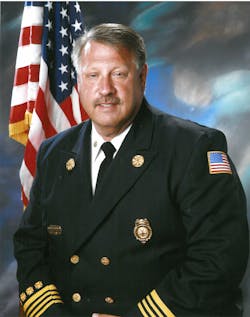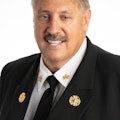Someone I use to work with told me a story recently about a situation in which the police called for the fire department to respond to clean a perpetrator who had defecated following a police chase and arrest. After arriving at the scene and finding out why they had been called, one of the firefighter-paramedics went off on a tirade about the police officers and the patient. He said defamatory and derogatory things in a raised voice to the point where other fire department members had to intervene. To his embarrassment, the whole outburst was caught on a police officer’s body camera.
Cameras are everywhere
Firefighter-paramedics need to realize that their actions on incident scenes are probably being captured from multiple vantage points. There are police wearing body cameras. Sometimes images are captured on police dash cameras, and the police officer has a microphone on his body tied back to the dash camera.
Citizens are notorious for whipping out their camera phones to record any scene where police officers are present. And of course there are security cameras everywhere these days. It is estimated that the average American citizen is caught on camera 75 times per day, including residential security surveillance systems, traffic cameras, elevator cameras, banks, parking garages, convenience stores, to name a few.
Some fire departments even have dash cameras mounted in the front of ambulances, engines and other apparatus for driving purposes or, in some cases, a command car is pointed at the scene to capture all the action for after-action reviews. I haven’t seen it myself, but I have also heard of fire departments that have cameras in the rear of the patient compartment or a camera mounted on the back of the ambulance pointing to the rear area of the ambulance. Others have cameras mounted in rear of the ambulance as part of a telemedicine project that they might be involved in. And if this was not enough, don’t forget that some firefighters have cameras mounted on their helmets.
Forget privacy
If you’re worried about your privacy, you might as well forget about it in most public places and emergency scenes. You’re actions, words and gestures are all captured for the world to see. As a public servant in the fire service, you are accountable for your actions.
You don’t even have to be on duty to be responsible for your actions, as evidenced by a recent situation in DeKalb County, GA. It all started when a fire captain and a fire department employee were pulled over by a Stone Mountain police sergeant for an expired license plate. Both personnel, who were off-duty at the time, claimed that the police sergeant was unprofessional, belligerent and cussed them out. Shortly thereafter, the fire department employee filed a written complaint against the police sergeant. The fire captain backed up her story in writing, too. What they did not realize was that the police cruiser had a dash camera and the sergeant was wearing a body camera. The story told by the two DeKalb County Fire and Rescue employees was not even close to what the camera video showed. After being shown the video, the Dekalb County Fire and Rescue employee recanted her story in writing.
Firefighters wearing cameras?
Some contend that firefighter/paramedics should also now start wearing body cameras to protect themselves from litigation claims of malpractice to other complaints centering on sexual abuse of the patient or other forms of abuse. Because opinions from attorneys will vary on what is and what is not permissible under HIPAA, I am sure that many in the fire and EMS community will be reluctant to place body cameras on firefighter/paramedics. If a firefighter/paramedic wears a body camera, there is an issue of confidentiality and privacy. The confidentiality issue can be addressed through procedures to ensure that the videos are only accessible by authorized personnel. Privacy is a bigger issue, and some will contend that the patient is entitled to a certain level of privacy in a medical situation. I suspect the debates that the police went through several years ago when they started moving to cameras will one day unfold in the fire and EMS profession.
In sum
It is important to remember that while you are working on a scene, it is more likely than not that you’re actions and comments are being recorded in some fashion. It is imperative to remain professional to ensure that your actions and comments are not called into question later.
About the Author
Gary Ludwig
GARY LUDWIG has served in three fire departments over his career: St. Louis, Memphis, and Champaign, IL. His fire, EMS and rescue career spanned a total of 46 years, and he has been a paramedic for over 44 years. Ludwig served as president of the International Association of Fire Chiefs in 2019-20. He has a Master’s degree in Business and Management, has written over 500 articles for professional fire and EMS publications and is the author of seven books.
Connect with Gary
Email: [email protected]
Facebook: Gary Ludwig
Twitter: @ChiefGaryLudwig
Website: garyludwig.com

